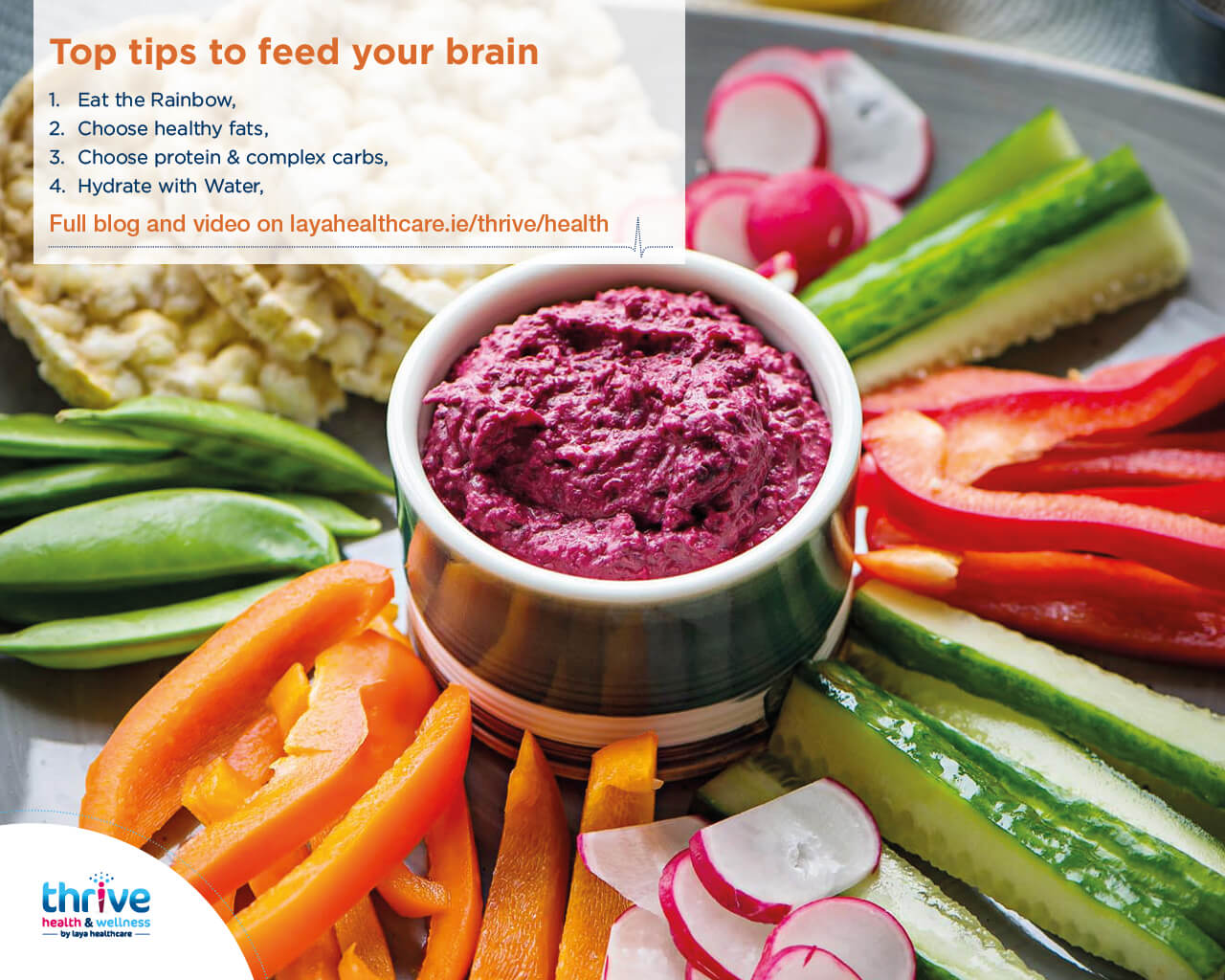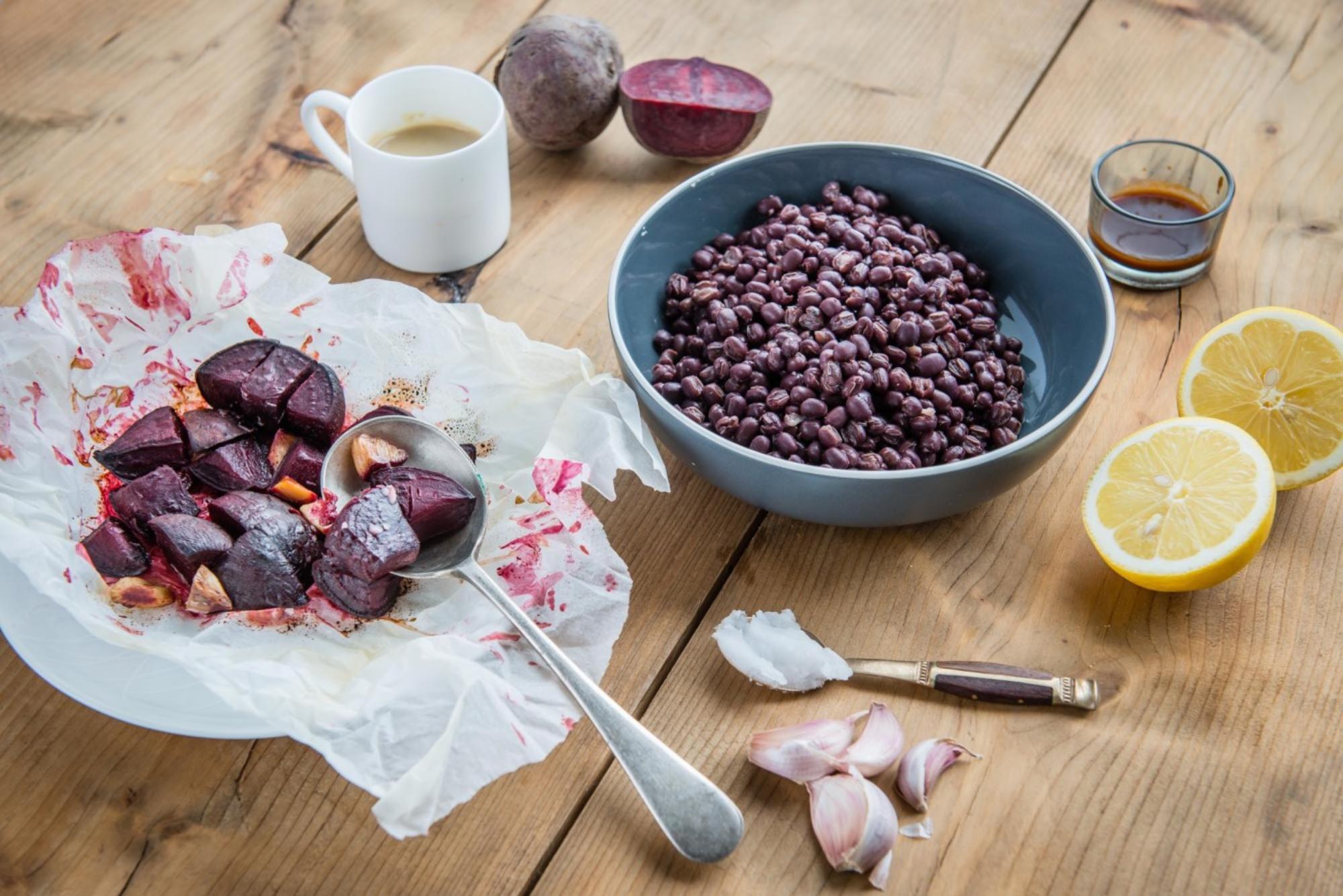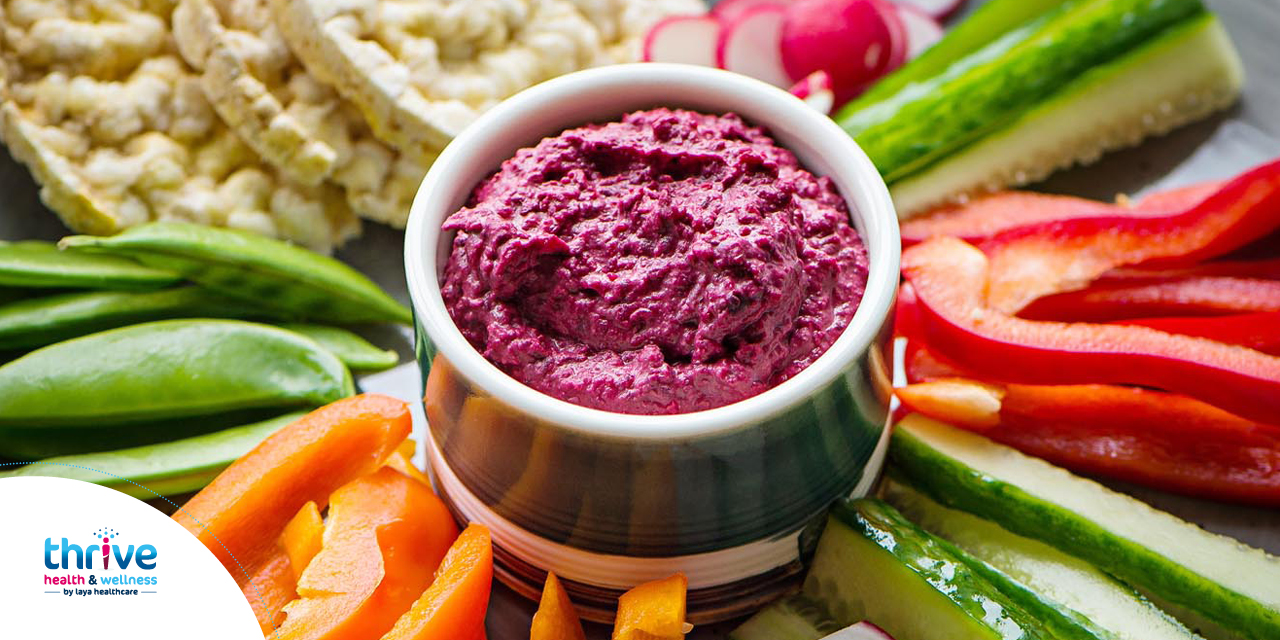It is commonplace to reach for comfort foods and stimulants when under pressure, and it makes sense short term. You are providing yourself with fuel, usually glucose and caffeine, as readily available energy that will help you manage the task at hand. However, this heightened effect wears off, with a crash that can leave you feeling more tired. To pick yourself up, you grab more caffeine and more sugar, and up you go again, for a while, before it starts to wear off. You are sending your body into peaks and troughs throughout the day, which is very demanding on its homeostatic processes. i.e. the body has mechanisms to constantly move itself into balance or equilibrium, but certain foods can cause extreme highs and crashes that demand additional energy to regulate that return to balance. Short-term, what seems like a good enough strategy, leaves you feeling wiped longer-term. Optimum nutrition is your best ally when you have exams, project deadlines, or anything that requires your continued focus and attention.
1.Eat the Rainbow
Foods that are naturally rich in colour are packed full of extra nutrition, such as phytonutrients, anti-oxidants, vitamins, and minerals. The deep blues, purples, and reds in berries represent their rich polyphenolic and antioxidant properties. Add berries to your oats, or on top of a greek yogurt as a snack, to reap the benefits of these nutrition powerhouses. Green leafy vegetables are also king when it comes to brain health. Kale, spinach, chard, cabbage, brussels sprouts, and broccoli, all provide rich sources of folate, a B vitamin that plays an integral role in the high rate of metabolic activity centred in the brain. In the video, I show you how to create a delicious beet pate, because beetroot is excellent brain food. Cognition, concentration, and recall are optimised by nitric oxide, and beetroot is one of the best dietary sources of this. Many studies that show this mechanism have used beet juice, which isn’t the most palatable. That’s why eating the beets, blended with aduki beans, garlic, and lemon juice, is a delicious option. Use it as a snack with carrots, peppers, or rice cakes, getting that hit of antioxidants as well as good quality plant protein and slow release complex carbohydrate.
2. Healthy Fats
Omega 3 polyunsaturated fatty acids (PUFA) are essential for brain health, because of the important role they play in the external structure of all cell membranes within the body, including neuronal cells that make up all that grey matter in the brain. Very low fat diets, or conversely, very high fat diets of synthetic, trans, or saturated fats can affect this structure negatively. Cells can become flimsy if there isn’t enough fat in the diet, or can become rigid if there is too much trans or saturated fat in the diet. And that, essentially, makes it difficult for them to do their job. Coating these cells in good quality fats is done by consuming good quality fats. Choose small oily fish such as mackerel, trout, herring, sardines, and anchovies. Twice a week is the baseline recommendation, but push for 3-4 times a week if your budget and palate allows. Walnuts, chia seeds, and flaxseeds are lovely sources of plant based Omega 3, so aim for 1-2 tablespoons of these sources every day in your porridge or smoothie. Finally make up the rest of that percentage intake with good quality fats like avocados and olives. Whole fat is the priority (small fish, seeds, nuts, and avocados) but good quality oils such as extra virgin olive oil and coconut oil in very small amounts can have their place too.
3. Protein Plus Complex Carbs
All main meals and snacks should contain good quality protein (chicken, fish, oily fish, eggs, greek yoghurt, legumes, beans) and complex carbohydrates (wholegrains, vegetables, fruits). Combining these two macronutrients provides sustained, slow-release energy that will help keep you focused and keep your concentration on target. Instead of snacking on a bag of jellies, or chocolate, or ice-cream, use real food that will support your energy throughout your day. 3-4 rice cakes with almond butter or peanut butter. 150g Greek yoghurt with berries and chia seeds. 2 chopped apples, and 6-8 walnuts. Or, of course, beet pate with carrot sticks. Mid-morning and mid-afternoon snacks should complement your main meals, but don’t over-do it.

4. Hydrate with Water, Caffeinate with Tea
Hydration is key to concentration. The effects of dehydration on the body are significant, and can play havoc with your focus and memory. Sip on water all day, keeping a bottle beside you at your work desk or in the library. Avoid cordials or sweetener-based squash. If you struggle with the taste, infusing with mint leaves, cucumber slices, watermelon slices, lemon and lime wedges, or crushed frozen raspberries can give water a slight lift. Caffeinating gently and regularly might suit you better than over-caffeinating, and it’s worth experimenting with your strategy. Caffeinated teas such as black tea, green tea, and white tea provide that focus-sharpening supply of caffeine without the large adrenaline and cortisol surge that strong coffee or energy drinks provide. T
5. Less Stress, More Success
Dietary stressors include caffeine, refined sugar, refined fat, and alcohol, and although the above points deal with them all in various way, it bears dedicating an entire final tip to this discussion. In periods of stress, dietary stressors can add to that feeling of anxiety, fatigue, or irritability because of the impact these foods have on your hormones. Caffeine raises the heart rate and blood pressure, through its impact on cortisol and adrenaline. If you are feeling anxious and irritable, excess caffeine may increase that sensation, which is not an easy state to manage when you’re already stressed. Refined sugar can cause spikes in blood glucose, entering the bloodstream quite quickly. Insulin is released to combat this excess glucose in the blood, and often, if the insulin response is too extreme, it can lead to feelings suggestive of hypoglycaemia; shakiness, fuzzy-headedness, fatigue, panic, and cravings for more sugary foods. Refined fat, as mentioned throughout tip 2 negatively impacts the coating of your cells and their ability to do their job. Replace those refined fats with whole fats/healthy fats. Alcohol is a diuretic, causing you to lose water, leaving you dehydrated. Dehydration negatively impacts your ability to concentrate and retain information, and will leave you feeling more tired. When you’re feeling more tired, you’re more inclined to reach for caffeine to perk you up, so you’re falling into a vicious cycle. Alcohol can also increase cravings for high-salt and high-fat foods, causing further dehydration, and round and round the vicious cycle goes.
Recipe For a Delicious Beet Pate
 200g beets, 3 cloves garlic, 1 tsp coconut oil
200g beets, 3 cloves garlic, 1 tsp coconut oil
1 x 400g tin aduki beans, 3 tbsp tahini, 1/2 lemon, pinch of salt and black pepper, 1 tbsp chipotle tabasco.
Wash and cube the raw beets and place in a parchment parcel or on a baking tray. Crush and chop 3 cloves of garlic and sprinkle over beets. Melt 1 tsp coconut oil and mix to ensure everything is coated. Place in the preheated oven at 200 for 45 minutes until roasted.
Blend this will all remaining ingredients in a food processor to make a pate.
Spread onto corn cakes, and sprinkle with chia for added omega 3
or
serve with vegetable crudité - carrot batons, cucumber batons, red and yellow pepper batons, radishes, sugar snaps.



